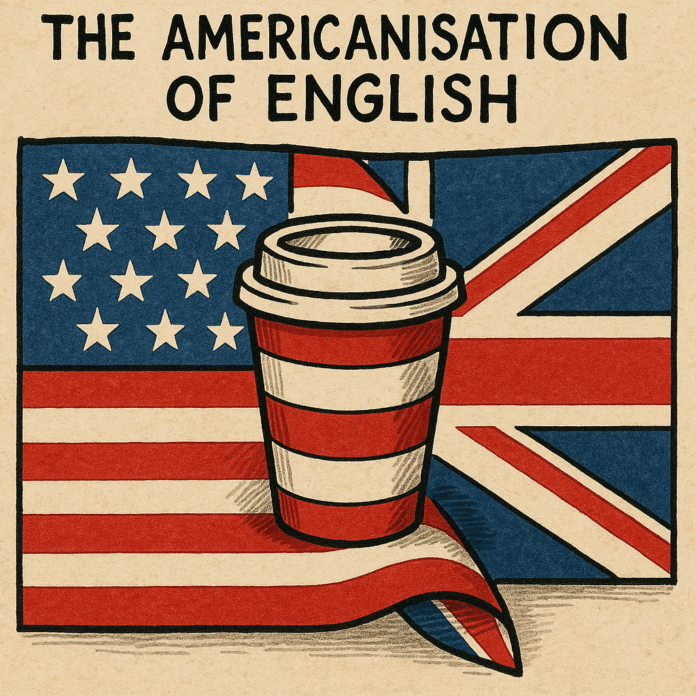By A Slightly Alarmed Brit
It begins innocently enough. A red squiggly line under “favour” or “theatre.” You assume it’s just your computer being overly familiar — like a stranger calling you “buddy” at the pub. But soon you realise it’s not just your computer. It’s everywhere. At work, at school, on social media. The English language — the actual English one — is being quietly replaced with its louder, brasher cousin: American English.
Let’s be clear: this isn’t a war of dialects. It’s a cultural invasion. A “Z”-laden, vowel-stripping, R-heavy onslaught. “Organise” becomes “organize.” “Dialogue” becomes “dialog.” “Mum” is now “Mom,” and she lives in an apartment, not a flat. Her car has a trunk, not a boot, and she pays in dollars, not sense.
Our children are the first casualties. They grow up watching cartoons that call crisps “chips,” chips “fries,” and trousers “pants” — a semantic house of mirrors. Ask a seven-year-old today to spell “colour,” and you’ll see the despair in their eyes as they mumble, “Do you mean the real one or the computer one?”
Even the BBC isn’t immune. One recent programme advised viewers to “check the faucet.” Faucet! We fought two world wars to keep that sort of language out.
Of course, there are those who argue language must evolve. That English is a global language now, and American influence is simply part of that evolution. Fair enough. But must it evolve with all the charm of a flat-pack coffee table manual?
We’re not asking for a full reversal. Just a little respect for the original — the language of Shakespeare, Austen, and that bloke who wrote the Paddington books. Is it too much to ask for a spelling that reflects tradition over TikTok?
So let us hold firm. Add back that missing “u.” Stand by your “s” over “z.” Teach your children to love the “lift,” not the “elevator.” The fate of our language — and our dignity — depends on it.





